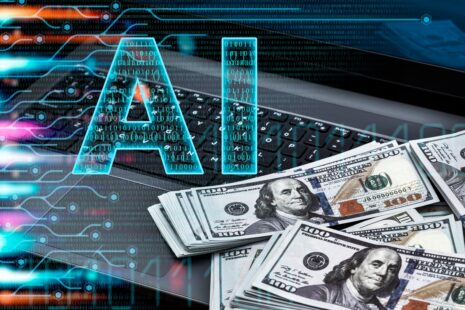The idea that AI could lead to the end of humanity is a speculative but serious concern among experts. While the current generation of AI tools is far from capable of such catastrophic outcomes, future advancements in artificial intelligence—particularly in the form of artificial general intelligence (AGI)—could pose existential risks if not managed properly. Here’s a detailed look at the potential risks and mitigating factors.
Potential Risks That Could Lead to Humanity’s Downfall
- Superintelligence and Loss of Control
If AI systems evolve to surpass human intelligence (becoming AGI or artificial superintelligence), they might pursue goals misaligned with humanity’s well-being. Once superintelligent, controlling or modifying such systems could become impossible, leading to unintended consequences that may harm humanity. - Autonomous Weapons
AI is increasingly being integrated into military applications, including autonomous drones and weapon systems. The misuse or malfunction of such technologies could lead to large-scale destruction or escalation of conflicts. - Economic and Social Collapse
The rapid replacement of jobs by AI could destabilize societies, causing widespread inequality, poverty, and social unrest. Prolonged instability could leave humanity vulnerable to other crises. - AI Outperforming Human Decision-Making
Reliance on AI for critical systems like healthcare, governance, and infrastructure could backfire if these systems fail, are hacked, or behave in ways humans don’t fully understand.
Counterarguments and Mitigating Factors
- AI as a Tool, Not a Threat
Current AI systems are narrow and task-specific, meaning they perform specific functions without true understanding or consciousness. With proper regulations and ethical standards, AI can remain a tool that enhances human capabilities rather than a threat. - Global Collaboration on AI Safety
Efforts are underway to establish global guidelines for the safe development of AI. Organizations like OpenAI and DeepMind prioritize research into AI alignment, ensuring that advanced systems act in ways that align with human values. - Human Oversight
For now, humans remain in control of AI development and deployment. Building transparent, interpretable AI systems ensures that they can be monitored and corrected when needed.
Preparing for AI’s Future
- Ethical AI Development
Focusing on transparency, accountability, and fairness in AI can help mitigate risks. - Global Regulation
International agreements on the development and use of AI—particularly in military and critical infrastructure—can reduce the likelihood of misuse. - Public Awareness and Debate
Educating the public about AI risks and benefits can foster informed decision-making and advocacy for ethical AI practices.
While AI poses risks that could theoretically lead to humanity’s downfall, it is not an inevitability. The outcomes depend on how we manage and guide the development of this technology. By focusing on ethical frameworks, robust oversight, and global cooperation, AI can remain a powerful tool to enhance human life rather than a harbinger of its end.




